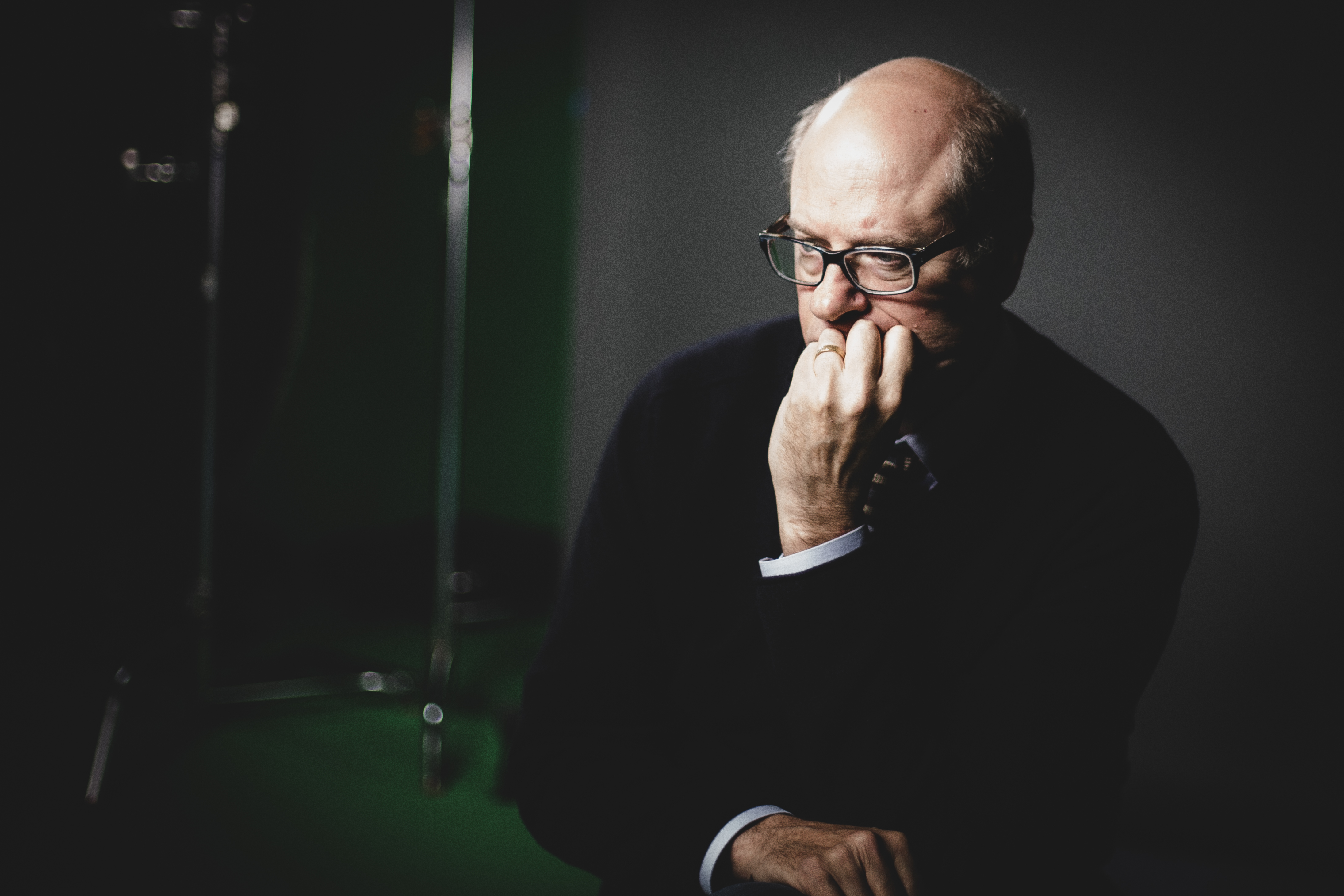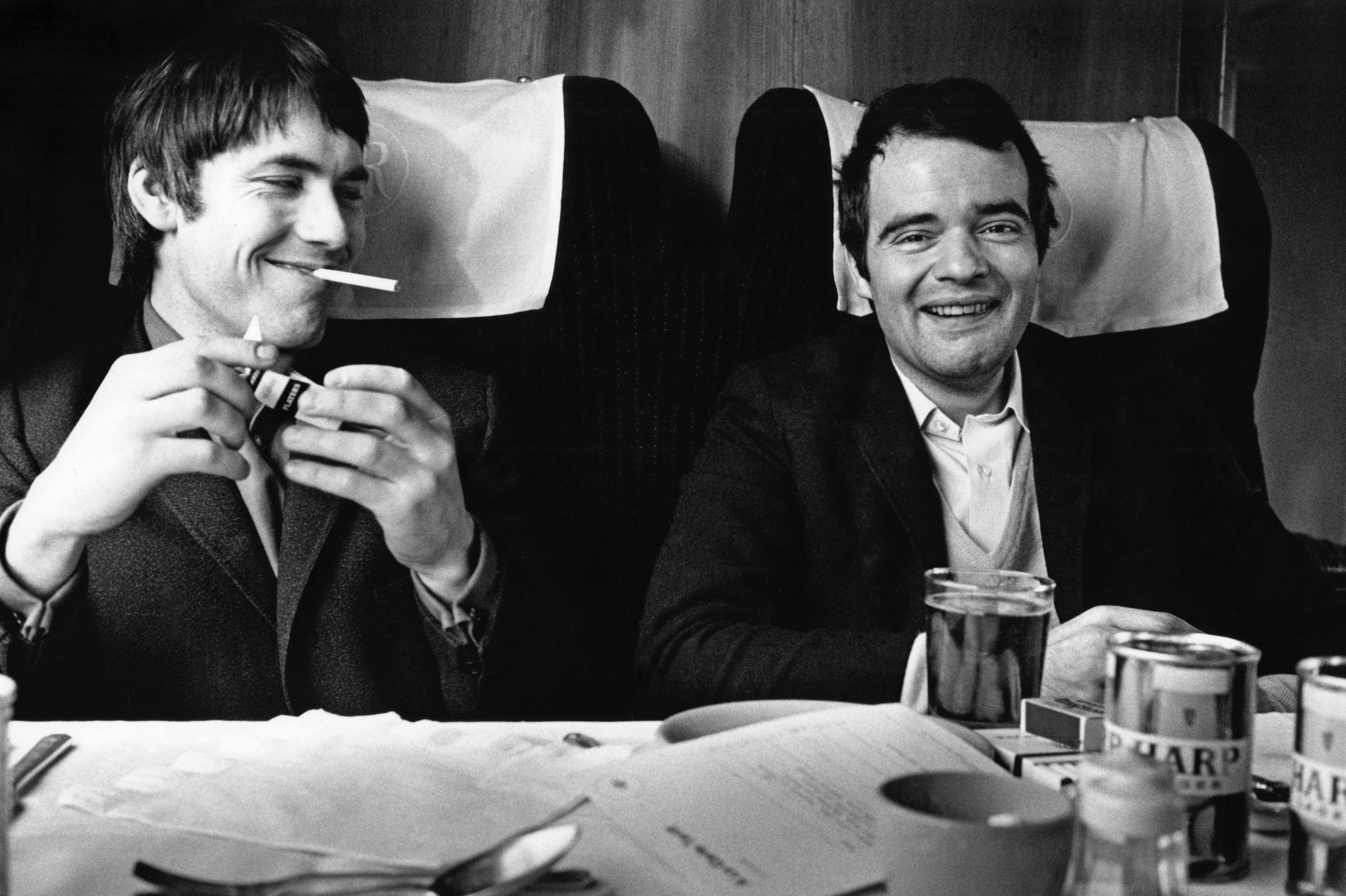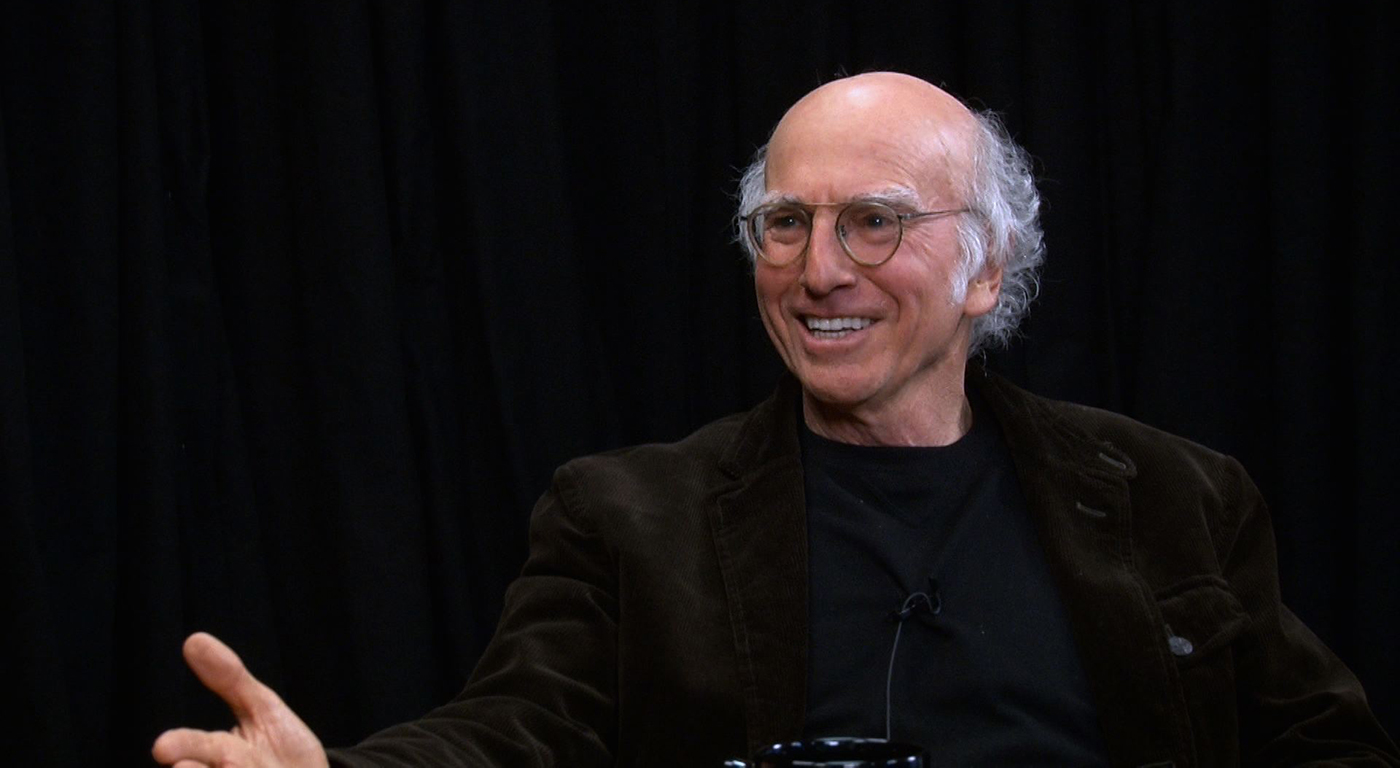“Film has always been a personal medium for me. Some people write with journals. I have always made little films that shoot right out of my soul. And I’m making them with my hands.”
For more than 15 years, David Russo has been making films, short films, funded out-of-pocket or by arts grants, rarely seen by a general audience. Until recently, they have been the creation of a solitary artist carving personal visions out of the world around him. His animated shorts typically combine painting, sculpture, photography, music, poetry, and soundscapes on unique moving canvases. In Pan With Us (2003), he takes the cel off the studio animation stand and makes it a canvas floating freely through space. As his paintings are photographed frame by frame on 35mm film, then transformed into a flowing, flying image, the surrounding throngs of people become pixilated, jittery, impermanent things.
I Am (Not) Van Gogh (2005) uses the same stop-motion and animation techniques to produce a visual stream of consciousness, set to a soundtrack of Russo explaining his idea for a project that an arts organization doesn’t understand. To date, his short films have been entirely non-narrative, works of wonder and grace, chaotic and visionary, unlike those of any other artist in Seattle.
Which is why you’ve probably never heard of him. Until now.
The Immaculate Conception of Little Dizzle represents a major leap for Russo: his first feature, his first narrative, and in many ways his first collaborative endeavor. Certainly it’s his first picture with actors (including troubled former starlet Natasha Lyonne), a substantial budget, and the pressures and compromises that inevitably come with indie filmmaking. “It is extremely distracting at first,” says Russo of his 19-day Seattle shoot last year, “especially being the kind of filmmaker I was—that always worked by myself. It was a nightmare.”
I first met David Russo a few months after his 2002 short Populi premiered at Sundance. Over a couple of beers at a Greenlake cantina with his wife, Celia, he proceeded to explain to me why film critics were irrelevant at best and parasitic at worst. It was one of the most enjoyable conversations I’ve ever had. It was the beginning of, if perhaps not a friendship, then at least a respectful acquaintanceship. At least on my part. I would sometimes run into Russo at a reception or a film event and catch up on his projects. And it was always fun to follow the career of the outspoken artist.
In 2004, he won The Stranger‘s Genius Award and proceeded to rip that paper in his acceptance speech. In 2005, he was awarded a Start to Finish grant by Northwest Film Forum to make a film of his choice. It didn’t stop his criticism of the insularity of local arts organizations that bestow grants. But it did start him on the road to Dizzle.
Russo had written the script in 2001, right before the invasion of Iraq. He recalls, “I knew we were going to war again, and it was an interesting time to write a script about marginalized people.”
Those people being the late-night janitors of Dizzle, who are being used by a market-research firm as unwitting guinea pigs for a highly-addictive “self-heating cookie.” The side effects of these enhanced snacks are unusual, to say the least, especially for the men: cramps, cravings, and finally giving birth to a living…something.
As with his handmade shorts, Russo creates almost all the Dizzle effects himself: animation for his characters’ hallucinations and visionary flights, and a hyper-real little blue creature that flops about like a fish out of water—the immaculately conceived Dizzle. And while there’s plenty of humor throughout the film, there’s nothing comic about this helpless mutant creature’s struggle to survive, or the dilemma of a confused father who instinctively tries to protect this unexpected progeny.
While the film has fantastic elements, Russo says its inspirations are autobiographical: “I was a janitor for 11 years. One night I found a miscarriage in one of the women’s-room toilets.Soon I got to thinking: What if something like that happened to men?” The film also explores religion and the contamination of our food supplies, he tells me: “[Dizzle] wants to be a conceptual think-y piece, but it also wants to be a legitimate story. I do love movies. And I wanted to give people a movie experience. [But] it has to be a little bit about the artist.”
Of one Dizzle character, this is literally true: One of the janitors, the exuberant OC (Vince Vieluf), spends his off hours applying for grants for his artistic endeavors. “OC is the artist that I’ve always wanted to be,” confesses Russo, “the one that really believed in what he was saying. Maybe not that talented, but it didn’t really matter.”
Ironically, despite having secured the indie grail of getting his first feature into Sundance, with SIFF the cherry on that cake, Russo is ambivalent about making another movie.
“I made every single little project that I ever wanted to, and Dizzle was the last one [I wanted to make],” he tells me over breakfast earlier this month. “What’s beyond it, I don’t know. I was ready to change my life after Dizzle.” (See more highlights from our conversation.) The film was acquired for distribution at Sundance, and Vista Films is currently selling it at Cannes. No Seattle release date is yet determined.
Yet Russo’s passion for the project is as manic as his personality. “I feel like a fuck-up and failure and loser,” he says. “I see this movie, and it’s not as good as I want it to be. And I don’t know that I deserve another chance at narrative.”
As he bounces around conversationally—one minute down on his failures, the next lasering in on a well-crafted effect or an emotionally delicate moment that he’s particularly proud of—it’s hard not to get caught up in his enthusiasm. Small, wiry, with a wound-up energy expressed with his busy hands, Russo talks about art and filmmaking with a conviction bordering on devotion. Surely this guy can’t be done with movies.
He tells me about his new project, an IMAX 3-D film with the Blue Man Group (“They’re basically looking for a fourth Blue Man who is a filmmaker”), and his excitement is palpable. “The Blue Man thing is a continuation of film school, a continuation of my art,” he enthuses. “I realized that my whole life I’ve been fighting two dimensions.”
It’s still a project in development, and Russo is deep into the process. “The Blue Man thing dropped into my field of vision, and the more I looked into it, the more interesting it became. I like the fact that it’s so hopeless, it’s so crazy, it’s so outlandish. But they’re also accomplished people. I didn’t look for it, but I’m taking it.”
Whatever his own feelings, I hope Russo does eventually take another shot at narrative. Dizzle is as passionate and eccentric a movie as has ever emerged from the local film scene. He stumbles through the narrative and fumbles for focus, but Russo’s “misfit film,” as he calls it, is a sincere and personal expression swirling with ideas and bubbling with imagery.
There are dozens of Blue Men in Vegas and on other stages throughout the world. But David Russo is, like his new film, utterly unique.







